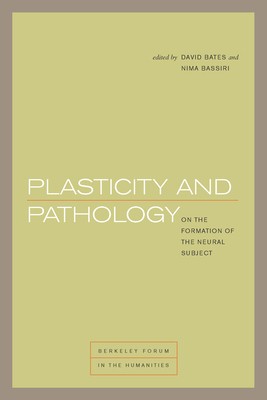
- We will send in 10–14 business days.
- Author: David Bates
- Publisher: Fordham University Press
- ISBN-10: 0823266133
- ISBN-13: 9780823266135
- Format: 15.8 x 23.1 x 3.1 cm, hardcover
- Language: English
- SAVE -10% with code: EXTRA
Reviews
Description
With the rise of cognitive science and the revolution in neuroscience, it is now commonplace to assume that the study of a human person-a thinking, feeling, acting subject-is ultimately the study of the human brain. In both Europe and the United States, massive state-funded research is focused on mapping the brain in all its remarkable complexity. The metaphors employed are largely technological: A wiring diagram of synaptic connectivity will lead to a better understanding of human behavior and perhaps insights into the breakdown of human personhood with diseases of the brain such as Alzheimer's. Alongside this technologized discourse of the brain as locus of human subjectivity we find another perspective, one that emphasizes its essential plasticity-in both the developmental sense and as a response to traumas such as strokes, tumors, or gunshot wounds.This collection of essays brings together a diverse range of scholars to investigate how the "neural subject" of the twenty-first
century came to be. Taking approaches both historical and theoretical, they probe the possibilities and limits of neuroscientific understandings of human experience. Topics include landmark studies in the history of neuroscience, the relationship between neural and technological "pathologies," and analyses of contemporary concepts of plasticity and pathology in cognitive neuroscience. Central to the volume is a critical examination of the relationship between pathology and plasticity. Because pathology is often the occasion for neural reorganization and adaptation, it exists not in opposition to the brain's "normal" operation but instead as something intimately connected to our ways of being and understanding.
EXTRA 10 % discount with code: EXTRA
The promotion ends in 17d.01:06:36
The discount code is valid when purchasing from 10 €. Discounts do not stack.
- Author: David Bates
- Publisher: Fordham University Press
- ISBN-10: 0823266133
- ISBN-13: 9780823266135
- Format: 15.8 x 23.1 x 3.1 cm, hardcover
- Language: English English
With the rise of cognitive science and the revolution in neuroscience, it is now commonplace to assume that the study of a human person-a thinking, feeling, acting subject-is ultimately the study of the human brain. In both Europe and the United States, massive state-funded research is focused on mapping the brain in all its remarkable complexity. The metaphors employed are largely technological: A wiring diagram of synaptic connectivity will lead to a better understanding of human behavior and perhaps insights into the breakdown of human personhood with diseases of the brain such as Alzheimer's. Alongside this technologized discourse of the brain as locus of human subjectivity we find another perspective, one that emphasizes its essential plasticity-in both the developmental sense and as a response to traumas such as strokes, tumors, or gunshot wounds.This collection of essays brings together a diverse range of scholars to investigate how the "neural subject" of the twenty-first
century came to be. Taking approaches both historical and theoretical, they probe the possibilities and limits of neuroscientific understandings of human experience. Topics include landmark studies in the history of neuroscience, the relationship between neural and technological "pathologies," and analyses of contemporary concepts of plasticity and pathology in cognitive neuroscience. Central to the volume is a critical examination of the relationship between pathology and plasticity. Because pathology is often the occasion for neural reorganization and adaptation, it exists not in opposition to the brain's "normal" operation but instead as something intimately connected to our ways of being and understanding.


Reviews